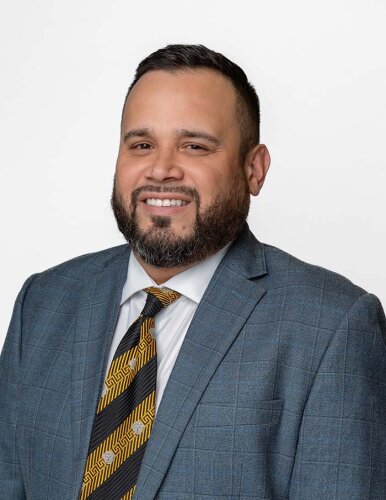Best Drugs & Medical Devices Lawyers in McAllen
Share your needs with us, get contacted by law firms.
Free. Takes 2 min.
List of the best lawyers in McAllen, United States
About Drugs & Medical Devices Law in McAllen, United States
Drugs and medical devices law covers the regulation, manufacture, distribution, marketing, prescribing, and use of pharmaceutical products and medical devices. In McAllen, Texas, those issues intersect federal regulation - primarily by the U.S. Food and Drug Administration and federal criminal enforcement agencies - with Texas state law and local courts. Common legal areas include product liability for defective devices, drug diversion and controlled-substance enforcement, regulatory matters like recalls and adverse-event reporting, health-care provider and pharmacy liability, Medicare and Medicaid compliance, and consumer protection claims. Because McAllen is a border community, cross-border concerns - such as medicines obtained abroad or cross-border clinical activity - can add additional legal complexity.
Why You May Need a Lawyer
There are many situations where a lawyer can help if you are dealing with drugs or medical devices:
- Personal injury from a defective medical device or adverse drug reaction - to evaluate a products liability or negligence claim.
- Allegations of criminal conduct - including prescription drug fraud, diversion, unlawful prescribing, or importation of controlled substances - where criminal defense is needed.
- Regulatory enforcement - if the FDA, DEA, or state health agencies open an inspection or investigation related to manufacturing, labeling, distribution, clinical trials, or pharmacy practice.
- Recall or adverse event response - to protect legal rights, preserve evidence, and manage communications with manufacturers, regulators, and insurers.
- Medical malpractice involving drugs or devices - to navigate Texas rules on expert reports, deadlines, and damages.
- Insurance and reimbursement disputes - involving Medicare, Medicaid, private payers, or prescription drug programs.
- Whistleblower or qui tam actions - if you suspect fraud in billing or drug/device promotion and are considering reporting.
- Consumer protection claims - for misleading marketing or violations of the Texas Deceptive Trade Practices Act.
Local Laws Overview
Federal law plays a dominant role in regulating drugs and medical devices. The FDA oversees premarket approval, labeling, post-market surveillance, and recalls. The Drug Enforcement Administration enforces the Controlled Substances Act for schedules of controlled substances and diversion control. At the state level, Texas law adds licensing, standards of care, and enforcement:
- Texas Controlled Substances Act - sets state criminal penalties and prescription rules for controlled substances. Violations can trigger both state and federal charges.
- Texas Medical Board and Texas State Board of Pharmacy - regulate licensing, professional discipline, and standards for prescribers and pharmacists in Texas.
- Texas Civil Practice and Remedies Code - governs statutes of limitations for personal injury and product-liability claims. As a general rule, many personal injury and product liability claims must be filed within two years of the date of injury, but there are exceptions and tolling rules.
- Medical malpractice procedures - in Texas, lawsuits against health-care professionals often require an expert report within a statutorily defined time after filing. Failure to comply can result in dismissal or dismissal with extension requirements.
- Texas Deceptive Trade Practices Act - provides consumer protections and remedies for deceptive marketing or misrepresentation of drugs and devices.
- Local courts and filing venues - civil claims typically proceed in Hidalgo County district courts, county courts at law, or federal court if federal jurisdiction applies. Criminal drug prosecutions are handled by local prosecutors for state charges and by the U.S. Attorney for federal offenses.
Because the interplay of federal, state, and local rules can be complex, early consultation with an attorney who understands both FDA and Texas law is important.
Frequently Asked Questions
What should I do first if I was harmed by a drug or medical device?
Preserve all evidence - save the product, packaging, implant cards, receipts, lot or serial numbers, and any correspondence with manufacturers or providers. Get medical treatment and request complete medical records. Document dates, symptoms, photos, and witnesses. Contact a lawyer experienced in products liability or medical malpractice promptly, because deadlines can limit your ability to bring a claim.
How long do I have to file a lawsuit for injury caused by a drug or device in Texas?
Many personal injury and product liability claims in Texas must be filed within two years of the date you knew or should have known about the injury. There are exceptions, such as claims against government entities, latent-injury rules, and tolling for minors. Medical malpractice claims have specific procedural rules and timing requirements. Consult an attorney immediately to preserve your rights.
Can I sue a manufacturer after a product recall?
A recall is evidence that a manufacturer recognized a safety problem, but recall alone does not guarantee a successful lawsuit. You can still pursue claims for negligence, strict products liability, and breach of warranty if the device or drug caused injury. The specifics - such as whether the product was altered, the timing of the recall, warnings, and your use - will affect the case.
What legal risks exist if I obtain medication across the border in Mexico?
Buying prescription drugs or medical devices from another country can create legal and safety risks. Many foreign drugs may not be FDA approved or may be misbranded or counterfeit. Importing controlled substances into the United States can be illegal and lead to criminal charges. If considering cross-border treatment or purchases, consult a lawyer and a health-care professional first.
What is the difference between a products liability claim and medical malpractice?
Products liability typically targets manufacturers, distributors, and sellers for defective design, manufacturing defects, or inadequate warnings - and can be based on strict liability in many cases. Medical malpractice focuses on the standard of care provided by health-care professionals and institutions. Some cases involve both - for example, a defective device used by a provider that also acted negligently.
How do FDA and state regulatory actions affect a private lawsuit?
Regulatory actions - such as inspections, warning letters, or recalls - can be powerful evidence in private lawsuits, but they do not automatically determine civil liability. Conversely, a private lawsuit can proceed even if the FDA has not taken action. Regulatory investigations can also produce documents and expert findings that litigants may use in discovery.
What should I bring to an initial consultation with a lawyer in McAllen?
Bring medical records, prescription records, photos, the device or packaging if available, billing statements, insurance correspondence, police or incident reports, communications with manufacturers or pharmacies, and a written timeline of events. A clear chronology and preserved evidence will help the attorney evaluate potential claims quickly.
How much will a lawyer cost for a drug or device case?
Fee arrangements vary. Many plaintiffs in personal injury and products liability cases are handled on a contingency-fee basis - the attorney is paid a percentage of any recovery. Regulatory defense and corporate matters are usually billed hourly. Ask about fee structure, anticipated expenses, and how costs like expert witnesses and testing will be handled during your initial consultation.
What agencies handle complaints and investigations locally and federally?
Federal agencies include the U.S. Food and Drug Administration for safety and marketing, the Drug Enforcement Administration for controlled substance enforcement, the Department of Health and Human Services - Office for Civil Rights for privacy and HIPAA matters, and the U.S. Attorney for federal criminal enforcement. State agencies include the Texas Medical Board, the Texas State Board of Pharmacy, and the Texas Department of State Health Services. Local prosecutors and the Hidalgo County courts handle state criminal and civil matters.
How do I report an adverse event or a potential violation?
Report serious adverse events to the FDA’s adverse event reporting system and to the manufacturer if possible. For controlled-substance diversion or prescription fraud, contact local law enforcement or the Texas State Board of Pharmacy. For privacy violations, you may report to the HHS Office for Civil Rights. Document your report and retain copies. An attorney can advise on reporting strategy and protect your legal interests.
Additional Resources
When seeking help with drugs and medical devices issues in McAllen, these organizations and bodies can be useful starting points for information and formal complaints:
- U.S. Food and Drug Administration - federal regulator for drugs and medical devices.
- Drug Enforcement Administration - federal enforcement for controlled substances.
- U.S. Department of Health and Human Services - Office for Civil Rights - for privacy and HIPAA complaints.
- Centers for Medicare and Medicaid Services - for reimbursement and fraud concerns.
- Texas Medical Board - licensing and discipline for physicians and certain health-care providers.
- Texas State Board of Pharmacy - licensing and regulation of pharmacies and pharmacists.
- Texas Department of State Health Services - state public health and safety oversight.
- Texas Attorney General - consumer protection and enforcement of state laws, including deceptive trade practices.
- Hidalgo County courts and county clerk - local filing, records, and court information.
- Hidalgo County District Attorney - state criminal prosecution authority.
- State Bar of Texas and Hidalgo County Bar Association - lawyer referral services to find qualified attorneys with relevant experience.
- Legal aid organizations such as Texas RioGrande Legal Aid - may provide assistance for qualifying individuals.
Next Steps
If you believe you have been harmed by a drug or medical device or face regulatory or criminal exposure, follow these practical steps:
- Seek medical care and request complete medical records without delay.
- Preserve evidence - product, packaging, implant cards, photographs, and correspondence.
- Document a clear timeline of events, witnesses, and symptoms.
- Contact an attorney experienced in drugs and medical devices law in Texas - ask about experience with FDA-related matters, products liability, medical malpractice, or criminal defense as relevant.
- Act promptly - statutes of limitation and procedural requirements can be short and may require swift action to preserve claims or defenses.
- Consider expert evaluation - medical experts and device engineers are often necessary to establish causation and liability.
- If you are uncertain about reporting to regulators, consult your attorney first to discuss strategy and protections.
- Keep copies of all documents, reports to agencies, and communications with insurers, manufacturers, providers, and law enforcement.
Finding a local lawyer with relevant experience will help you understand the specific legal options, deadlines, likely costs, and probable outcomes based on the facts of your situation. If you need help locating counsel, contact the State Bar of Texas or the Hidalgo County Bar Association for referrals and screening for expertise in drugs and medical devices law.
Lawzana helps you find the best lawyers and law firms in McAllen through a curated and pre-screened list of qualified legal professionals. Our platform offers rankings and detailed profiles of attorneys and law firms, allowing you to compare based on practice areas, including Drugs & Medical Devices, experience, and client feedback.
Each profile includes a description of the firm's areas of practice, client reviews, team members and partners, year of establishment, spoken languages, office locations, contact information, social media presence, and any published articles or resources. Most firms on our platform speak English and are experienced in both local and international legal matters.
Get a quote from top-rated law firms in McAllen, United States — quickly, securely, and without unnecessary hassle.
Disclaimer:
The information provided on this page is for general informational purposes only and does not constitute legal advice. While we strive to ensure the accuracy and relevance of the content, legal information may change over time, and interpretations of the law can vary. You should always consult with a qualified legal professional for advice specific to your situation.
We disclaim all liability for actions taken or not taken based on the content of this page. If you believe any information is incorrect or outdated, please contact us, and we will review and update it where appropriate.














